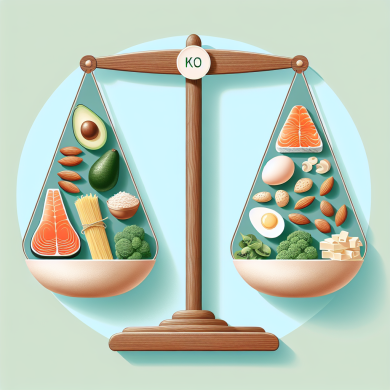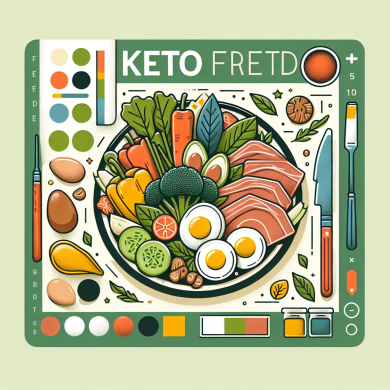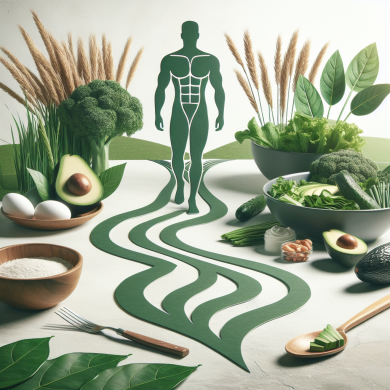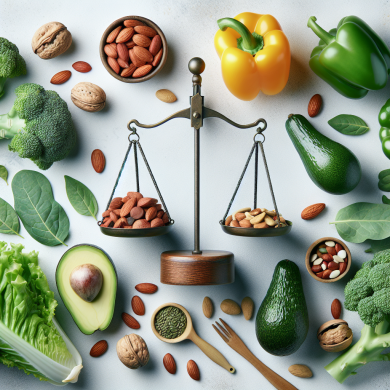Essential High-Fat Foods for Keto Success
Introduction to the Ketogenic Diet
The ketogenic diet, often referred to as the keto diet, has gained immense popularity for its potential benefits in weight loss, improved energy levels, and mental clarity. At its core, the keto diet is a high-fat, low-carbohydrate eating plan that shifts the body’s metabolism from relying on glucose for energy to using ketones, which are produced from fat. This metabolic state is known as ketosis.
Achieving and maintaining ketosis requires a careful balance of macronutrients, with fat playing a central role. While protein and carbohydrates have their place, ensuring a diet rich in high-quality fats is crucial for success. This article delves into the essential high-fat foods that can help you thrive on your ketogenic journey.
Understanding the Role of Fats in Ketosis
Before exploring specific foods, it’s important to understand why fats are so vital in a ketogenic diet. Traditionally, carbohydrates are the body’s primary energy source. When you dramatically reduce carb intake, the body must find an alternative fuel source. By increasing fat consumption, you encourage the liver to produce ketones, which serve as a replacement energy source for the brain and body.
Fats are also essential for hormonal balance, nutrient absorption, and cell health. On a keto diet, they provide satiety, helping to keep hunger at bay and reducing the temptation to stray from your eating plan. However, not all fats are created equal, and it’s vital to focus on healthy sources.
Essential High-Fat Foods for a Keto Diet
1. Avocados
Avocados are a quintessential keto food, packed with healthy monounsaturated fats, which are heart-friendly and provide numerous health benefits. They are also rich in fiber, which aids digestion and helps maintain steady blood sugar levels. A single avocado contains about 15 grams of fat, making it an excellent addition to your meals, whether sliced on a salad or blended into a creamy avocado dip.
2. Nuts and Seeds
Nuts and seeds are nutritional powerhouses that offer a crunchy, satisfying texture to any meal or snack. Almonds, walnuts, pecans, and macadamia nuts are particularly high in healthy fats, while chia seeds, flaxseeds, and hemp seeds provide a combination of omega-3 fatty acids and fiber. These foods are not only rich in fats but also provide essential vitamins and minerals, making them a nutrient-dense choice for keto dieters.
3. Coconut Oil and MCT Oil
Coconut oil is a staple in the keto world, known for its medium-chain triglycerides (MCTs) that are rapidly absorbed and converted into ketones. MCT oil, a concentrated form of these triglycerides, is even more potent and can be added to coffee, smoothies, or salad dressings for a quick fat boost. Both coconut oil and MCT oil are excellent for cooking due to their high smoke points and stability.
4. Olive Oil
Extra virgin olive oil is renowned for its heart-healthy properties and is a staple in Mediterranean diets. Rich in monounsaturated fats and antioxidants, olive oil can enhance the flavor of your dishes while contributing to your fat intake. Drizzle it over salads, use it in cooking, or create a simple vinaigrette for a flavorful boost.
5. Fatty Fish
Fatty fish such as salmon, mackerel, sardines, and trout are rich in omega-3 fatty acids, which have anti-inflammatory properties and are essential for brain health. These fish provide a substantial amount of protein along with their healthy fats, making them an excellent choice for main meals. Aim to include fatty fish in your diet at least twice a week to reap the full benefits.
6. Cheese
Cheese is a delicious and versatile food that fits well into a keto diet. It offers a good amount of fat along with protein and calcium. Varieties like cheddar, mozzarella, brie, and goat cheese can be enjoyed in various ways, from simple snacks to more elaborate dishes. Keep portion sizes in mind, as cheese can be calorie-dense.
7. Butter and Ghee
Butter and ghee, a clarified form of butter, are rich in saturated fats and ideal for cooking and baking on a keto diet. Ghee is lactose-free, making it suitable for those with dairy sensitivities. Both butter and ghee add flavor to vegetables, meats, and various keto-friendly recipes.
8. Eggs
Eggs are a versatile and affordable source of high-quality fats and protein. They contain essential nutrients like choline and vitamin D and can be prepared in numerous ways, from scrambled to poached. Including eggs in your diet can help you meet your fat intake goals while enjoying a nutritious meal.
Balancing Your Keto Diet with High-Fat Foods
While incorporating high-fat foods is essential for keto success, balance is key. Here are some tips to ensure you’re getting the most out of your high-fat choices:
Focus on Quality
Prioritize whole, unprocessed foods as much as possible. Choose organic, pasture-raised, and grass-fed options when available to ensure you’re consuming the highest quality fats. This approach not only supports ketosis but also contributes to overall health.
Mind Your Macros
While fats are the primary focus, it’s important to maintain an appropriate balance of protein and carbohydrates. Use a macro calculator to determine your ideal ratios and adjust your diet accordingly. Tracking your intake can help you stay on course and make necessary adjustments.
Listen to Your Body
Every individual responds differently to the keto diet, so pay attention to your body’s signals. If you experience fatigue, digestive issues, or other concerns, it may be necessary to tweak your fat sources or consult with a healthcare professional.
Stay Hydrated and Electrolized
High-fat diets can impact electrolyte balance, so it’s crucial to stay hydrated and ensure adequate intake of sodium, potassium, and magnesium. This can help prevent common keto side effects like the “keto flu.”
Conclusion: Embrace the Power of High-Fat Foods
Transitioning to a ketogenic diet can be a transformative journey, and high-fat foods are at the heart of its success. By incorporating a variety of nutrient-rich, high-fat options like avocados, nuts, olive oil, and fatty fish, you can fuel your body effectively and enjoy the numerous benefits of ketosis.
Remember, the key to a successful keto diet is not just about increasing fat intake but choosing the right types of fats that support overall health and well-being. With careful planning and a focus on quality, you can embrace the power of high-fat foods and achieve your ketogenic goals.















Add comment